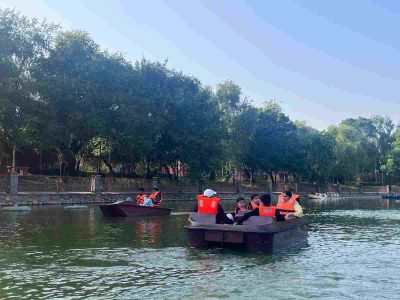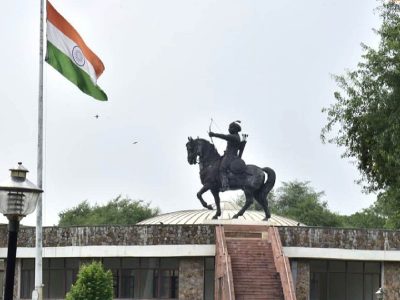Sunita Devi, a resident of Delhi’s Okhla Vihar, is among the first few individuals to use the newly-introduced wheelchair facility at Jantar Mantar.
“I am seeing such a comfortable facility made available to us for the first time. Though I have regular back pain and am unable to walk properly, this wheelchair facility has provided me with much-needed relief,” she says.
“I used to visit Jantar Mantar for a walk when I was very young but with growing age, I avoided coming as I was not in a position to walk. But with wheelchairs made available here for the elderly people and patients, I am sure that those days are returning,” says the 66-year-old Devi.
Rajkumar Singh, another visitor at Jantar Mantar, has also used the wheelchair.
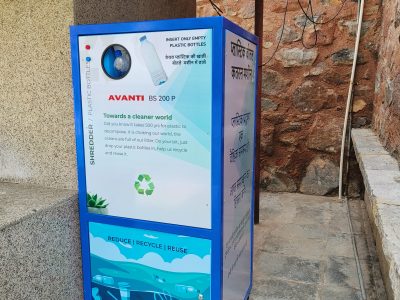
“It gets very tough for one to walk as an old man. I can’t walk much and need a wheelchair to move. Recently, I learnt about this facility and decided to take advantage of it. This facility would bring a lot of comfort in our lives,” he says.
Both Sunita Devi and Rajkumar Singh need to thank ASI for starting the ‘Adopt A Heritage 2.0’ programme wherein the government department signs Memorandums of Understanding (MoUs) with various agencies for the adoption of monuments across India.
The department says it recognises the importance of collaboration with external partners in ensuring safety and enhancement of visitors’ experience at these cultural treasures. The signing of MoUs is a commitment from these agencies to take up the responsibility of adopting specific monuments, contributing to their maintenance and better showcasing to the public.
Powerlinks Transmission Ltd — a joint venture between Tata Power Company Limited and Power Grid Corporation of India Limited — has adopted the Jantar Mantar monument while Tata Power Trading Company Limited has opted for Hauz Khas monuments.
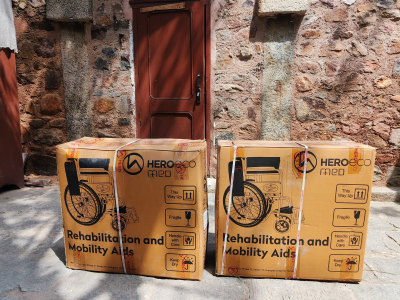
ASI officials posted at Jantar Mantar say that they have received two Pet Bottle Crusher Machines, four wheelchairs and one first aid box.
At Hauz Khas Fort, situated near the Hauz Khas village and constructed during the reign of Alauddin Khalji in the 13th century, ASI officials say they have received four sets of dustbins, two wheelchairs, two Pet Bottle Crusher Machines and a first aid box from the agency.
Facilities like this would now be available across the other monuments in Delhi too.
A senior ASI official told Patriot that under the ‘Adopt a Heritage 2.0’ programme, agencies are tasked with enhancing the visitor experience at designated monuments through the provision of various amenities.
“These amenities include hygiene facilities such as toilets, drinking water kiosks, baby care rooms, waste management systems, and shoe covers,” he says.
“Accessibility features include pathways, ramps, wheelchairs, multi-lingual signage including braille versions, directional signage, and Wi-Fi facilities, along with designated parking areas. Safety measures include first aid stations, CCTV surveillance, adequate lighting, including illumination powered by Green DG sets and renewable energy sources, as well as cloakrooms,” he says.
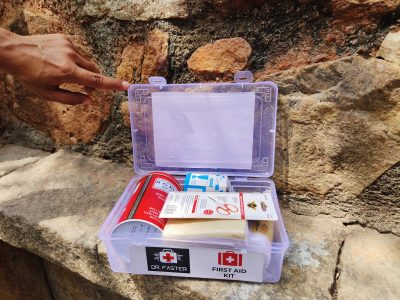
“Additionally, there can be souvenir kiosks, cafeterias, audiovisual/multi-media rooms, audio guides/app-based guides, cultural/light and sound shows, and greening and landscape facilities among others,” he added.
A total of nine monuments have been adopted by various agencies in Delhi out of 173 in total. The agencies are expected to spend Rs 1.5 crore in maintenance and development for five years.
Those partnering with ASI have been designated as Smarak Sarathi and Smarak Sathi. Officials say that Smarak Sarathi would be the one who would provide all the facilities at the adopted monuments while Smarak Sathi will take up only selective work.
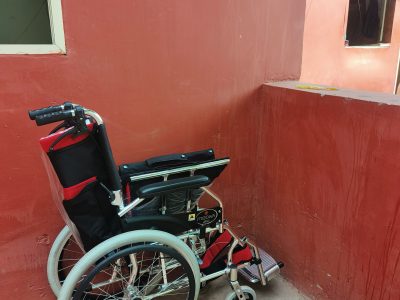
Balban’s Tomb, Jamali Kamali Mosque, Rajon ki Baoli, and Gandhak ki Baoli in the Mehrauli Archaeological Park, as well as Purana Qila, Humayun’s Tomb and Safdarjung Tomb have been adopted by Sabhyata Foundation. Qutub Minar has been adopted by Ease My Trip Foundation and Uggar Sain’s Baoli by Zee Akash News Pvt Ltd.
With 16 MoUs already signed across India, agencies are adopting monuments and starting work on these amenities to ensure ease of access and enriching experiences for visitors.
Another ASI official says that the aim of collaborating with private agencies is to promote the cultural and heritage values of the nation.
“We want to give a message out there that these monuments belong to everyone and their preservation is everyone’s duty,” he says.



